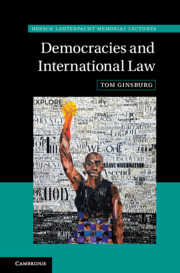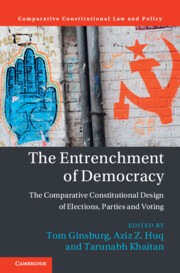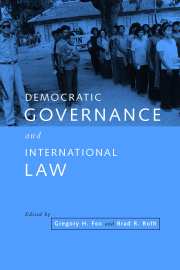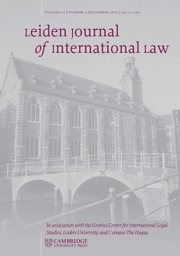Democracies and International Law
Democracies and authoritarian regimes have different approaches to international law, grounded in their different forms of government. As the balance of power between democracies and non-democracies shifts, it will have consequences for international legal order. Human rights may face severe challenges in years ahead, but citizens of democratic countries may still benefit from international legal cooperation in other areas. Ranging across several continents, this volume surveys the state of democracy-enhancing international law, and provides ideas for a way forward in the face of rising authoritarianism.
- Explains the difference between democratic and authoritarian approaches to international law to help readers understand one of the key issues of our time: the conflict between democracies and non-democracies
- Elaborates Chinese views of international law, introducing English-language readers to Chinese thought
- Includes global examples from most parts of the world, expanding readers' perspectives beyond western approaches
Awards
Winner, 2022 Book of the Year Award, American Branch of the International Law Association
Reviews & endorsements
'… an important and wide-ranging treatment of the international-constitutional law relationship.' Rosalind Dixon, American Journal of International Law
Product details
December 2021Hardback
9781108843133
250 pages
235 × 157 × 21 mm
0.67kg
25 b/w illus.
Available
Table of Contents
- Introduction: A tale of two dictators
- 1. Why would democracies be different?
- 2. Are democracies different? Some facts
- 3. Can international law save democracy?
- 4. Regions and the defense of democracy
- 5. Authoritarian international law
- 6. Whence the liberal order? China, the United States, and the return of sovereignty
- Conclusion: What is to be done?










